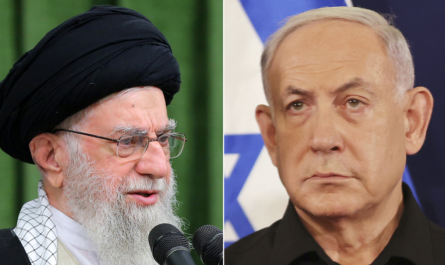Sasson’s report took special note of Avi Maoz, who ran the Construction and Housing Ministry during most of this period. A political activist who early in his career spoke openly of pushing all Arabs out of the West Bank, Maoz helped found a settlement south of Jerusalem during the 1990s and began building a professional alliance with Benjamin Netanyahu, who was then the Israeli ambassador to the United Nations and would soon go on to his first term as prime minister. Years later, Maoz would be instrumental in ensuring Netanyahu’s political survival.
“The picture that emerges in the eye of the beholder is severe,” Sasson wrote in her report. “Instead of the government of Israel deciding on the establishment of settlements in the territories of Judea and Samaria, its place has been taken, from the mid-1990s and onward, by others.” The settlers, she wrote, were “the moving force,” but they could not have succeeded without the assistance of “various ministers of construction and housing in the relevant periods, some of them with a blind eye, and some of them with support and encouragement.”
This clandestine network was operating, Sasson wrote, “with massive funding from the State of Israel, without appropriate public transparency, without obligatory criteria. The erection of the unauthorized outposts is being done with violation of the proper procedures and general administrative rules, and in particular, flagrant and ongoing violation of the law.” These violations, Sasson warned, were coming from the government: “It was state and public agencies that broke the law, the rules, the procedures that the state itself had determined.” It was a conflict, she argued, that effectively neutered Israel’s internal checks and balances and posed a grave threat to the nation’s integrity. “The law-enforcement agencies are unable to act against government departments that are themselves breaking the law.”
But, in an echo of Judith Karp’s secret report decades earlier, the Sasson Report, made publicly available in March 2005, had almost no impact. Because she had a mandate directly from the prime minister, Sasson could have believed that her investigation might lead to the dismantling of the illegal outposts that had metastasized throughout the Palestinian territories. But even Sharon, with his high office, found himself powerless against the machine now in place to protect and expand the settlements in the West Bank — the very machine he had helped to build.
All of this was against the backdrop of the Gaza pullout. Sharon, who began overseeing the removal of settlements from Gaza in August 2005, was the third Israeli prime minister to threaten the settler dream of a Greater Israel, and the effort drew bitter opposition not only from the settlers but also from a growing part of the political establishment. Netanyahu, who had served his first term as prime minister from 1996 to 1999, and who previously voted in favor of a pullout, resigned his position as finance minister in Sharon’s cabinet in protest — and in anticipation of another run for the top job.




